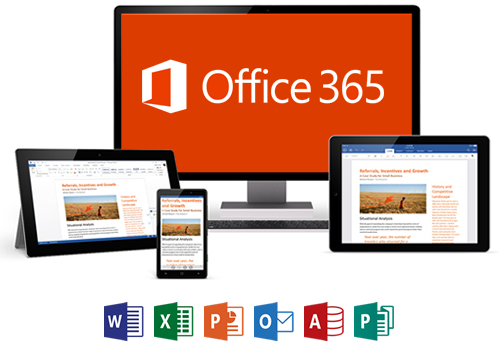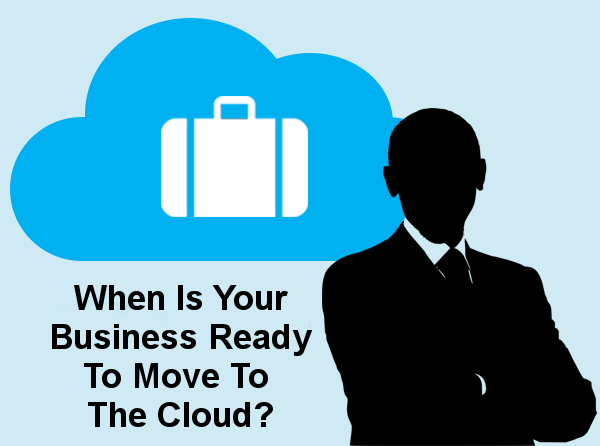
| Cloud computing has been front and centre of the global shift to remote working. Find out how you can maximize this technology for your small business. Continue reading |


| Cloud computing has been front and centre of the global shift to remote working. Find out how you can maximize this technology for your small business. Continue reading |

There’s not a business around that doesn’t use email on a daily basis. Whether for sending internal memos or communicating with clients and customers, email is a core necessity of all modern businesses. What many modern businesses are doing though, is dropping the in-house email server and moving to a cloud solution. Here’s why you should do the same.
Reduced network problems
Computer network operates in a delicate balance and when one piece breaks chaos follows. Connected systems and processes tend to fail, productivity drops as all focus shifts away from normal activities. It becomes a mad scramble to get the network up again, especially the email servers (the last thing you want is for all your client/customer emails to bounce back!). While it’s good to have confidence in your current computer guru, the assumption that any crashes will always happen when they are available has caused many regrets and panicked phone calls that could have been avoided. When you move to a cloud solution, you’re able to say goodbye to onsite servers and all the accompanying drama, making your remaining infrastructure easier to maintain.
Lower hardware and maintenance costs
Maintaining your exchange servers is costing a tidy sum from hardware repairs and license fees alone. Add in the cost of scaling your server to keep up with your business growth, and suddenly keeping your email in-house doesn’t make financial sense. Instead, consider what it would be like to have predictable costs for your email hosting that covers everything, including the latest technology and round the clock administration. Many solutions offer on-demand plans, so you only pay for the options you want.
You’re still in control
One of the main arguments for keeping your Exchange server on premise is to make sure you have complete control over your email; you’re able to limit physical access, no 3rd party has access to your critical data, and you always know where your data is. While control may have been the deciding factor in the past, the fact is cloud solutions have evolved so much that these arguments are void. Physical security at one of Microsoft’s data farms, for example, goes far beyond that of your locked server room and digital access is strictly limited to those you specify.
Greater protections
Cloud solutions provide automatic protection against many threats, including fire, power outages, viruses and flood. While your own in-house server has anti-virus running and a backup plan, it’s still incredibly vulnerable. Backups get forgotten, virus definitions don’t get updated in time, and you’re very lucky if your own server can survive a fire or flood. Moving your email hosting to a cloud solution removes all that risk, usually with an uptime guarantee that lets your business get on with essential tasks. As email is a critical tool for your business, isolating your systems from risk may be one of the best decisions you make all year.
Spam and Virus Filtering
With thousands or even millions of spam and virus emails hitting servers every day moving your email to the cloud relieves the stress and load of filtering and managing these emails from your local server. It also frees up your internet line by stopping the junk from even reaching your offices as they are stopped dead in their tracks in the cloud.
If you need further help with your email server needs, call us today on 08 8326 4364 or via email at su*****@dp*********.au.
 You have probably seen all the advertising for Office 365. They are popping up when you surf the web and your employees are bugging you to upgrade and improve their productivity. You may have even done some research and checked out what all the fuss is about but is Office 365 a necessary upgrade for your small business? The answer is yes. It is much more than just hosted email and includes many more tools to improve your productivity. Here are 7 reasons you may not of thought of why small business owners should upgrade now.
You have probably seen all the advertising for Office 365. They are popping up when you surf the web and your employees are bugging you to upgrade and improve their productivity. You may have even done some research and checked out what all the fuss is about but is Office 365 a necessary upgrade for your small business? The answer is yes. It is much more than just hosted email and includes many more tools to improve your productivity. Here are 7 reasons you may not of thought of why small business owners should upgrade now.
1. Data security is built in
Office 365 is designed with data security at its core. The built-in compliance and security protocols mean your storage is safe in the cloud and you can control access.
2. Ditch the licensing drama
Software version differences are a real nightmare in small offices. Not every system can do the same things or even open the same files. It quickly becomes a hodge-podge of workarounds and time is lost trying to find keys that came when you bought your computer years ago. Office 365 includes site-wide licenses with upgrades at the same time. All your licenses are in the same place and you can easily upgrade and also downgrade the number of licenses when required.
3. Mail storage for real people
Most people leave messages in their inbox forever. Occasionally they may do a quick clean up but that doesn’t happen often. With Office 365, your employees can communicate without worrying about storage space.
4. Better time management
Every person in your business is busy – they are juggling meetings, emails and contacts – usually across multiple platforms (computers in the office and at home, tablets and smart phones). Office 365 combines all those elements and integrates them seamlessly for more efficient time management. Contacts that are updated via users mobile phones are automatically updated across all connected devices. Meetings scheduled in an email are added instantly to the calendar. You can even access files from any device, edit them on the run and then back in the office, simply pick up where you left off.
5. Predictable costs
Forget about planning for costly software upgrades as the monthly subscription model of Office 365 has you covered. You can choose a plan based on your unique needs and change it at any time. You can even add or decrease the number of users as you scale and streamline. For a low monthly cost it is now so easy to fit Office 365 into your budget while knowing you now have the same functionality that previously only the big corporates could afford.
6. Work on the go
The days of fiddling with settings are over. Thanks to Office 365 you don’t even need any special IT skills or extra software. Users can now securely access their files from home, during their commute, or in meetings. An internet connection is all your staff will need to squeeze extra productivity out of every day.
7. Stay up and running with little downtime
A whopping 25% of small businesses shut down permanently after flood, fire, crash or cyber-attack. With Office 365, all your data is stored in the cloud. No matter what happens, your data will be there and as long as you have an internet connection your data is always available.
If you are ready to take your productivity to the next level contact us on su*****@dp*********.au or on 08 8326 4364.
 By now you would have heard of the cloud and know that the cloud is not going away any time soon (click here to learn more about cloud computing). In fact, thanks to its many benefits, cloud computing has become a natural step in business growth. More and more business applications are being released in an online format and staff are becoming more familiar with this type of interface. So when is the right time to move your business computing to the cloud?
By now you would have heard of the cloud and know that the cloud is not going away any time soon (click here to learn more about cloud computing). In fact, thanks to its many benefits, cloud computing has become a natural step in business growth. More and more business applications are being released in an online format and staff are becoming more familiar with this type of interface. So when is the right time to move your business computing to the cloud?
As the cloud has become mainstream many businesses are facing this question. Like any strategic business decision though, timing is everything. Here are a few factors to consider before making the switch.
If your current servers are reaching their end of life and a large capital investment is needed you may be able to minimize the expense by moving to the cloud. This can be a huge cost saving made in just moments.
Many businesses now have a mobile workforce that needs access to files from anywhere and at any time. Cloud computing allows your staff to work safely, securely and efficiently from any location with internet access.
If your business currently outsources your IT management and support you are perfectly suited for the move to the cloud. Network maintenance and monitoring becomes a non-issue as it is handled automatically as part of the cloud service. You will find problems are fixed before you knew they existed and server downtime becomes a thing of the past.
If you move to the cloud your internet speed becomes a important factor to consider. If you currently have a slow and unstable connection you may need to examine other Internet options (ie NBN, fibre, MBE, EFM and 4G) for faster speed or maybe even look at delaying your move until a faster service is available. Having a failover Internet connection is also preferable in case anything happens to your main link.
Need for predictable IT costs
If your IT costs sometimes spiral out of control, challenging your patience and budget, cloud computing will seem like a dream come true. With the cloud you are moving from a capital expense to an operational one – server replacements are no longer your concern. You can budget for IT costs in advance with the majority of your IT expenditure already known leaving your cash flow free for other expenses.
Now that cloud computing is more advanced, secure and priced competitively it is a good time to examine your options. At its core, cloud computing is purely about doing things better and can have a massive impact on your profits, productivity and even staff satisfaction rates.
We offer a variety of cloud services to help your business. Give us a phone call at 08 8326 4364 or via email on mailto:su*****@dp*********.au" data-original-string="cOkRcah8gMIAVYdkUit7fv8ZR5iPZtqGICeD+9LaHpY=" title="This contact has been encoded by Anti-Spam by CleanTalk. Click to decode. To finish the decoding make sure that JavaScript is enabled in your browser. to discuss how we can improve your business IT.